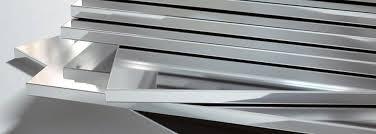In the oil and gas industry, pipelines play a crucial role in transporting materials safely over long distances. For pipelines to be reliable and durable, the materials used must be able to withstand harsh environments, high temperatures, and pressure. Stainless steel 321 sheets have become a popular choice for these applications due to their excellent properties. Let’s explore the role of stainless steel 321 sheets in oil and gas pipelines.
1. Resistance to High Temperatures
Oil and gas pipelines often operate under high temperatures, especially in processing plants, refineries, and offshore drilling rigs. Stainless steel 321 sheets are designed to handle these extreme temperatures without losing their strength or structural integrity. This heat resistance ensures that pipelines made from stainless steel 321 remain effective and reliable even in the hottest environments, preventing any potential damage that could occur with materials less suited to high heat.
2. Corrosion Resistance
The oil and gas industry deals with many corrosive substances, including saltwater, chemicals, and gases. Stainless steel 321 sheets contain titanium, which enhances their ability to resist corrosion, even in harsh environments. This is particularly important for pipelines that are exposed to the elements or are submerged in salty water, as corrosion can lead to leaks, failures, and costly repairs. The corrosion resistance of stainless steel 321 helps ensure the longevity and safety of pipelines, making it a top choice for this industry.
3. Durability Under Stress
Oil and gas pipelines are subjected to constant pressure and stress, especially when transporting materials under high pressure. Stainless steel 321 sheets are known for their strength and toughness, which means they can endure these pressures without cracking or failing. This makes them ideal for use in pipeline systems that need to operate continuously under difficult conditions. Their durability ensures the pipeline’s structural integrity over time, reducing the risk of breakdowns or leaks.
4. Flexibility in Fabrication
Pipelines need to be built to specific shapes and sizes to fit the terrain, space, and requirements of the system. Stainless steel 321 sheets are highly versatile and easy to fabricate, which allows engineers to shape and weld them into the precise dimensions needed for pipeline construction. This flexibility makes stainless steel 321 sheets a great option for both new pipeline projects and the repair or replacement of damaged sections.
5. Long-Term Cost Effectiveness
While the initial cost of stainless steel 321 sheets may be higher than some other materials, they are highly cost-effective in the long run. The combination of heat resistance, corrosion resistance, and durability means that pipelines made from stainless steel 321 sheets require less maintenance and have a longer lifespan. This reduces the need for costly repairs or replacements, making it a smart investment for oil and gas companies looking to minimize long-term operational costs.
6. Safety and Reliability
Safety is a top priority in the oil and gas industry, and using materials that ensure the integrity of pipelines is critical. Stainless steel 321 sheets are highly reliable under extreme conditions, providing peace of mind that pipelines will function safely over time. Their resistance to heat, corrosion, and stress means they can handle the demanding environments of oil and gas transport, reducing the risk of accidents or failures that could lead to safety hazards or environmental damage.
7. Maintenance-Free Operation
One of the major advantages of using stainless steel 321 sheets in oil and gas pipelines is the low maintenance required. Thanks to their corrosion resistance and durability, these sheets need less upkeep compared to other materials, saving time and resources. With less maintenance, oil and gas companies can focus more on their core operations and less on repairing or replacing pipeline sections, improving overall efficiency.
8. Suitability for Offshore Applications
In offshore oil and gas operations, pipelines are exposed to both harsh weather conditions and saltwater, which can quickly degrade less durable materials. Stainless steel 321 sheets are particularly well-suited for offshore pipelines due to their exceptional resistance to saltwater corrosion and ability to withstand the stresses of marine environments. This makes them a preferred choice for offshore drilling rigs and subsea pipelines, where reliability and long-term performance are crucial.
Conclusion
Stainless steel 321 sheets play an important role in the oil and gas industry, particularly in pipeline construction. Their resistance to high temperatures, corrosion, and pressure ensures they remain effective and durable under challenging conditions. These sheets offer excellent durability, flexibility in fabrication, and long-term cost-effectiveness, making them an ideal choice for both onshore and offshore pipelines. By choosing stainless steel 321 sheets for pipeline applications, oil and gas companies can ensure the safety, reliability, and longevity of their infrastructure, ultimately reducing operational costs and improving performance.



